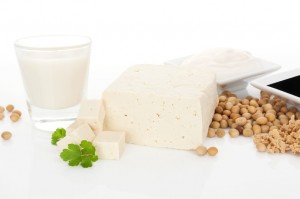Sing a song of some soy?
Sorry, couldn’t resist. You know my humor by now. 🙂
Happy MORSELCIOUS NUTSO-SWEET Monday! You asked and we responded. We LOVE hearing from you and doing our best to answer your questions, so please keep ’em coming!
On a personal side note, we had a MORSELICIOUS celebration with my parents for their 50th Wedding Anniversary this weekend! What an amazing accomplishment, eh? 50 years and they had a BALL! Actually, we ALL did! 🙂 In their honor, I’m extending my 10% coupon code “TENMO” when you shop https://macnmos.com/shop/main.sc

Thanks to my Nutso-Sweet partner in crime, Lauren O’Connor for today’s MORSELICIOUS post on the pros and cons of soy. We’d love to hear from you. Do you eat soy? If so, what kinds? How often? Please share your comments.
Is soy good or bad for you?
If your diet is heavily meat-based and/or you need to lower your cholesterol, reduce your blood pressure and lose a bit of weight, substituting organic soy (and other plant-based protein options) for cholesterol-laden animal products can help you do all three.

According to a position paper by the American Heart Association, most studies report that LDL cholesterol (the bad cholesterol) has significant reduction following the addition of soy protein to a diet low in cholesterol and saturated fat. Based on the research reviewed, the AHA suggests a daily consumption of >25g soy protein (in place of red meat) will improve lipid levels in subjects with high cholesterol.
And if you simply need more variety to get in some plant-based protein in your diet, you can certainly benefit from soy. But how much you consume and what type does make a difference. It is important to note that, according to the AHA, in persons with normal cholesterol levels, the addition of soy protein does not appear to have the same cholesterol lowering effect.
PROS
PRO 1. Protein without Cholesterol: Soy is one way to meet your protein needs. Because soy is plant-based, it is cholesterol free. It does not contain sat fat. 1/2 cup (4 oz) of tofu contains 10g of protein! Soy it is one of many plant-based options to help you cut down on red meat.
PRO 2. A Low Calorie Choice: 4 oz of Tofu contains approx. 100 calories vs 4 oz of meat (ground beef) = 330 calories. There is approx. 180 calories in 4 oz of boiled chicken and about 160 calories in 4 oz of plain salmon. Note: Beans and rice is another meat-free complete-protein option, also relatively low in calories.
PRO 3. Variety: Soy comes in many varieties. This includes edamame beans, silken tofu, firm tofu, tempeh, soy milk. Tofu is easy to use in stir-fry’s as a meat substitute, as a scramble (like scrambled eggs) and in sandwiches instead of processed deli meats. Edamame are great for snacking since they are a fun size to pop into your mouth — they are also a satisfying, calorie-friendly food at just 120 calories per 1/2 cup.
PRO 4: A good source of Calcium: One-half cup of tofu contains nearly one-quarter of your RDA needs. At 227g calcium per serving, that’s 22% of the RDA. If you are allergic to dairy, soy milk is one alternative to cow’s milk — it contains just as much Calcium, Protein and Vitamin D.
CONS
CON 1. Nutrition-disabling mechanisms: According to Dr. Joseph Mercola’s article in The Huffington Post, Unfermented Soy contains components which may disrupt nutrient absorption, hormonal balance, blood flow and encourage toxin formation. These include: Phytic Acid, Trypsin Inhibitors, Goitrogens, Phytoestrogents/Isoflavones, Hemagglutinin, Synthetic Vitamin D, Aluminum and even MSG.
CON 2. Genetic Modification: Not all soy is ‘created equal’. Many soy products are synthetic and genetically modified — giving them potential to cause damage. Some of the issues of GMO soy includes low birth weight, allergies and sterility.
CON 3: Excess Estrogen?: Many fear that the phytoestrogens in soy may be harmful to women. Because of the highly concentrated amount of isoflavones, it has been suggested that soy consumption may increase breast cancer risk. A 1994 study in the American Journal of Clinical Nutrition addresses this concern. However, various other human studies don’t provide conclusive evidence to support this claim. According to the American Cancer Society, moderate consumption of soy foods appears to be safe. That being said, you should monitor your intake. Dr. Mercola suggests that just 2 glasses of soy milk daily can affect a woman’s menstrual cycle.
CON 4: Highly-processed: Many forms of soy are highly-processed. That means they contain added sugars, stabilizes and artificial flavorings. Be sure to read the labels to make sure your organic soy milk or organic tofu has little to no added sugars and the product contains whole natural ingredients and not a laundry list of items of which you can’t pronounce. Look for unsweetened and organic on the label is choosing a soy milk.
Related article: Soy: The Good, The Bad and The Best
TAKE HOME MESSAGE:
Quite simply, if you are of normal cholesterol and a healthy weight, I recommend limiting soy to a 1/4 – 1/2 cup portion once or twice a week because there are so many other heart-healthy options for getting in protein; and you don’t want to overdo it (on any type of food). For those with high cholesterol, up to 25g per day could benefit, but it is best to choose organic and mostly fermented options Choose Fermented Soy because it has the most benefit and is less likely to be of GMO variety. And make sure you choose organic!
Get back into shape or simply fine-tune your “healthy-eating plan” – by joining Nutri-Savvy’s #cleaneating Challenge (I’m onboard – hope you are too!):




